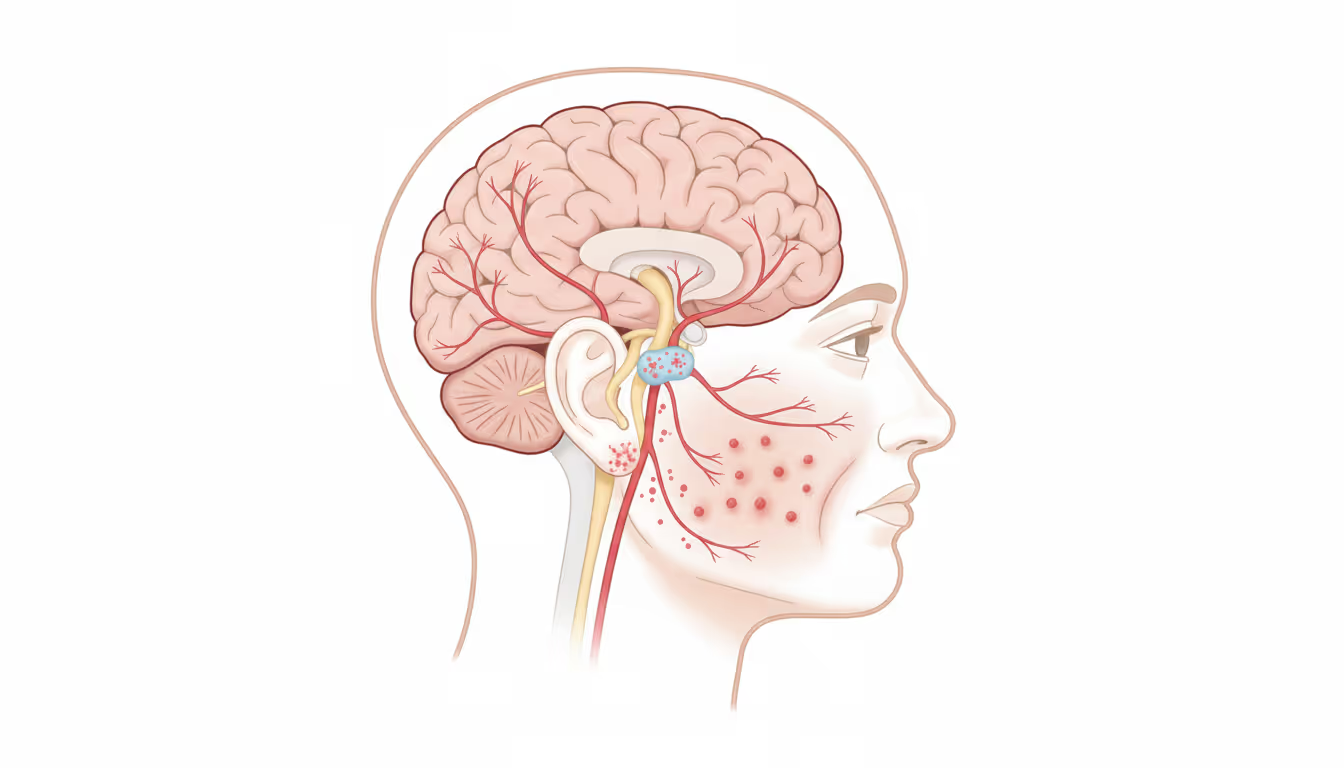
Ramsay Hunt syndrome refers to a viral infection affecting the geniculate nerve ganglion, leading to paralysis of the facial muscles on the infected side. The geniculate ganglion is a sensory ganglion linked to the seventh cranial nerve. This condition is often accompanied by a rash and blisters. The syndrome is named after the distinguished American neurologist James Ramsay Hunt (1872-1937), and common mistakes include spelling his first name as "Ramsey" or inserting a hyphen between "Ramsay" and "Hunt," which is incorrect. There are three types of Ramsay Hunt syndromes:1. Ramsay Hunt syndrome I: This variant is marked by symptoms of cerebellar dysfunction, such as intention tremor and myoclonus, and may also involve occasional tonic-clonic seizures. It was first described by Ramsay Hunt in 1921.2. Ramsay Hunt syndrome II: The most widely recognized form, this syndrome results from a herpes virus infection in the geniculate nerve ganglion, leading to facial muscle paralysis on the affected side.3. Ramsay Hunt syndrome III: This type is characterized by occupational neuritis of the deep branch of the ulnar nerve.




